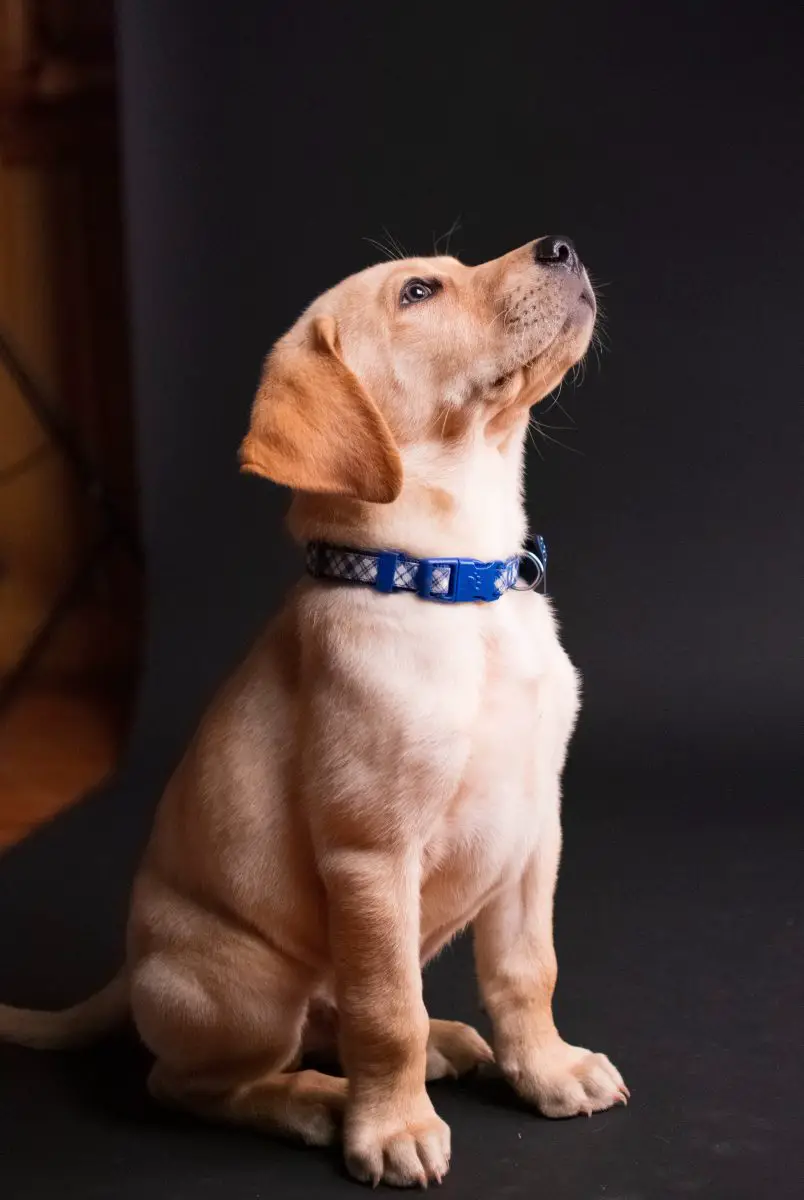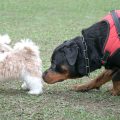You want to believe that the creative name you chose for your dog is one that they know. After all, most dogs will come when you call their name. They also brighten up when you speak to them; some may even cock their heads. It may also seem that, like humans, some dogs are more expressive or talkative than others. So then, you might begin to wonder, do dogs know their names? Do they really understand us?
While there is no simple answer to whether dogs know their names or not, there are ways to ensure they associate with their name better. Understanding how dogs learn their name and remember will help you be a better pet owner, too.

Table of Contents
- How Dogs Understand Their Humans
- Choosing a Dog Name for Dog Hearing
- Teaching a Dog Their Name
- How to React When Your Dog Responds to Their Name
- How Long Does it Take for a Dog to Learn Their Name?
- Signs a Dog Knows Their Name
- Who’s a Good Boy?
- FAQs
How Dogs Understand Their Humans
Most animals don’t really know who they are. Unlike humans and crows, most creatures have no sense of self. That’s not to say dogs aren’t intelligent. Most breeds can recognize up to 165 words on average. There’s even a Border Collie called Chaser who knows 1,000 names for different objects.
But they learn differently than humans do, as well. So how do dogs know what we’re talking about?
Turns out it’s a mixture of positive reinforcement and deductive reasoning. It’s hypothesized that when you say, “Good morning, Buddy,” your dog isn’t getting excited because you’re greeting him. Rather, he’s wagging his tail and smiling because he knows that particular sounds means he’s getting fed soon.
There’s also the matter of body language. If you grab for the box of dog treats, your dog automatically knows what that means.
Yet, in terms of your dog considering themselves as an individual—as in, “my name is Buddy”—that simply doesn’t happen. Yes, dogs know what belongs to them, when they get attention over another, what their pee smells like compared to others, and so on, but they don’t know themselves like people do.
Therefore, it’s assumed by most dog trainers and animal behaviorists that dogs perceive their names as a command rather than identification. That’s why when you call their name, they come running.
Choosing a Dog Name for Dog Hearing
Word recognition can be confusing for dogs, because people tend to throw a lot of words at them at once. Unfortunately for us humans, we tend to anthropomorphize our four-legged friends. Again, dogs are intelligent, but they’re not as intelligent as we want them to be.
So when you choose a name, don’t make it incredibly difficult. It’s the same as when you start teaching commands and obedience. You don’t ask them politely to sit down. You simply tell the dog to sit.
In other words, if you’re choosing a name for a dog, consider one that fulfills all the following:
- It’s a short name
- Distinct vocal sounds
- Contains hard consonants
By that definition of a good dog name, options like Max, Rover, Duke, Nike, Suzy, and Tina are all considered ideal. If you choose a name with soft sounds, like Echo, Anna, or Ollie, your dog will have a more difficult time picking out your voice from other noises. Additionally, you should avoid long names. While Penelope or Daenerys are fun names, your dog’s brain will muddle it.
Teaching a Dog Their Name
How do dogs learn their name? Through positive reinforcement. You say their name and look for the ideal response, being them coming to you. Don’t be upset if your new puppy or shelter rescue doesn’t respond right away. Names are confusing to dogs at first, because it’s a word they don’t understand. Also, avoid using negative reinforcement or punishment on dogs. They’ll only become scared of you and develop bad behaviors.
The best method for teaching a dog their name is to first choose a good name. Say their name and, if they look at you or come over, give them a treat as positive reinforcement. If your dog isn’t food motivated, play or pets work. Should the dog look away or not respond, you repeat until you get the desired result.
Don’t overload your dog. 3-5 times a day is enough to begin their name recognition.
Afterwards, you can start pairing their name with a command, such as “Fido, sit” or “Fido, lay down.” Because they think of their name as a command to pay attention or come, the secondary command is easier to follow.

How to React When Your Dog Responds to Their Name
Want to accelerate the learning process? As mentioned, positive reinforcement, such as a treat, is key. Dogs understand praise like people do, so praise them often. You want to show your dog how excited you are when they do the right thing. Saying “yay!” happily when they look at you when you say their name is a start. As your dog gets wiser to their name, add in some other words, like “Hey, you want to go for a walk, Cliff?” and see if they look at you when you say their name. If they do, give them a treat.
Here’s some more tips for teaching your dog their name:
- Offer affection or treats whenever your dog does something right.
- Say your dog’s name the same way all the time. Avoid singsong and other melodic changes.
- Never use your dog’s name when punishing them. You want your dog to associate his name with only happiness.
- Don’t say your dog’s name when you don’t want a response. If you want to discuss your dog while they’re in the room but don’t want them to respond, try using a nickname. Otherwise, you could cause confusion.
How Long Does it Take for a Dog to Learn Their Name?
To recap: Do dogs know their names? Not really. They don’t learn that their name is Fido or Frank. But they will understand that their name requires their attention. If you tell your dog their name consistently for a two-week period, they should know it within two and half weeks. Consistency, though, is crucial.
Repeat the training process every day and always back up their good work with positive reinforcement.
Also, the age of the dog and their breed will impact how fast they learn their name. Puppies pick up on their names faster than older dogs. Working and herding breeds also tend to learn commands faster than other breeds.
Signs a Dog Knows Their Name
So you may be curious. How do you know when a dog knows their name? What signs are there? Dogs will respond to the tone of your voice and their name, even at a distance, when they know it. For example, if you call their name at the dog park, they should come running.
You can start testing how well they know their name by creating distance. In the beginning of name training, you start face-to-face. Soon put furniture, walls, rooms, and greater amounts of space between you. Also, look for eye contact, tail wags, perked up ears, cocked heads, and other signs of excitement. Some dogs will even bark when you say their name, because they know they’ll be rewarded somehow.
Who’s a Good Boy?
Do dogs know their names? Depends. Dogs might not know the name is referring to them, but they do know that the word is associated with good things. If you train your dog well and with plenty of praise, they will come to love their name and what it means. Use their name to build a stronger bond, and they’ll come running whenever you call.
FAQs
While we can’t fully grasp the complex thought processes of dogs, it’s clear that they associate their names with attention, activities, and positive experiences. Using their name effectively can enhance communication and strengthen the bond between you and your furry companion.





